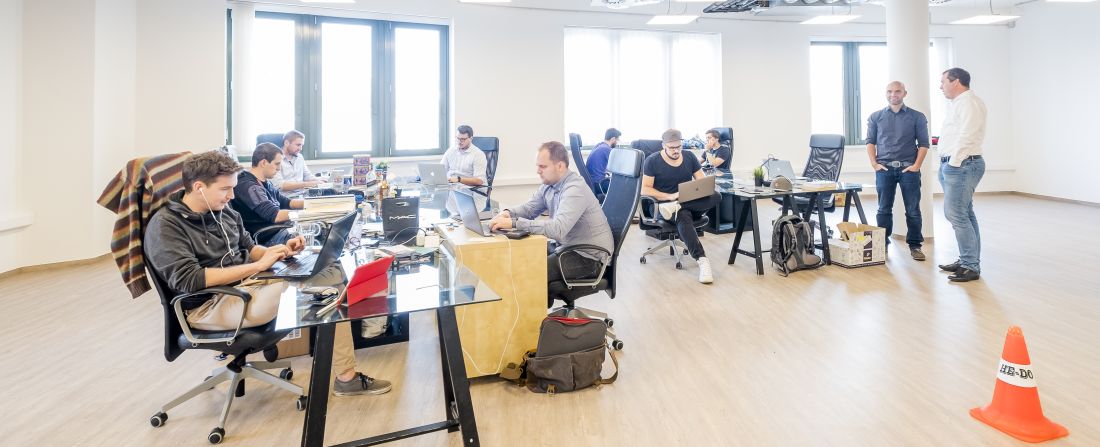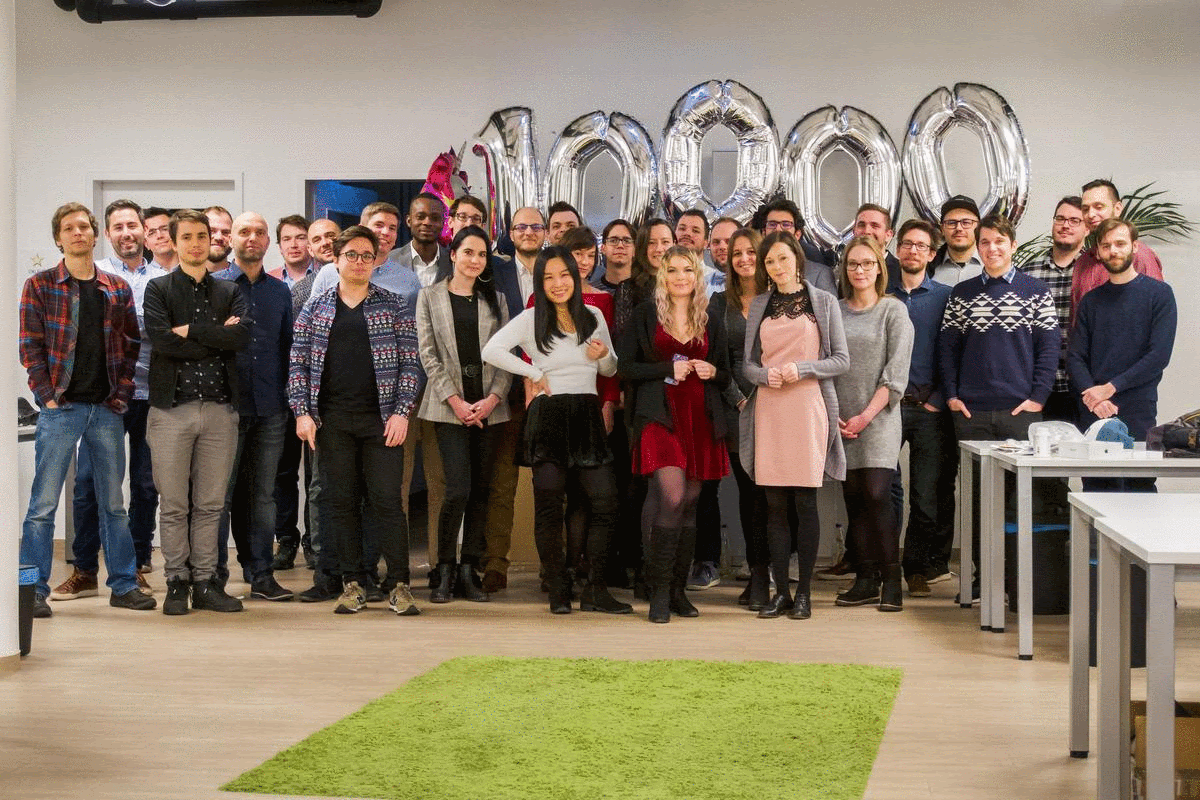Growing from 7-100+ with the values of humbleness, curiosity, product-obsession, and pragmatism.
After his company was acquired by Skyscanner in 2014, Ákos worked with the growing travel industry giant for over three years as an Engineering leader. During that time, he answered directly to the company’s CTO and Engineering VPs, and led the adoption of mobile while the company grew from 500 to 1000 people.
A brief sabbatical later, he began looking for Hungarian startups building native products, where his experience scaling engineering organizations could make a significant impact. He became an angel investor in Shapr3D in 2017 and eventually took on a full-time role from early 2019.
Here’s his take on the Engineering team’s culture at Shapr3D.

Q: One and half years after joining Shapr3D, what is the most exciting thing about coming to work every day?
A: The best thing about the team is the quality of talent that we have and are aspiring to attract over the next couple of years. There isn’t a single person in the company that I can’t learn from.
“We’ve worked to keep the bar high and it’s still happening. Recently, someone we hired who had previously worked as a software engineer for Google said that the quality of talent and code are at least equal to that of Google. I’ve never worked there, so that was really good to hear.”
Q: It’s rare to see a startup in the Hungarian landscape with a global approach — in Shapr3D’s case partnerships with Apple, Microsoft, and CAD industry giant Parasolid, and a visible path towards disrupting an established industry. How does your own experience and Shapr3D’s values come into play when you’re hiring?
A: One of the biggest challenges in structuring the way we work, is making sure that teams and individuals in our growing company can focus the same way they would in a small team. Preserving this is a priority, because it’s how startups usually outpace big companies — by cutting out decision latency and promoting faster decision making.
“Our focus is on making sure that all our teams are empowered and incentivized to make decisions independently. People aren’t afraid of taking risks, setting ambitious goals, and in some cases, failing. We know how to learn from our mistakes.”
When it comes to our core values, I always reach back to pragmatism. Anyone who makes a decision has to explain how they got to that conclusion. This helps everyone reach a shared understanding and make decisions themselves in the future based on contextual reasoning. It also encourages learning and knowledge sharing.

Q: How does knowledge sharing and pragmatism affect the rest of the team’s values and culture?
A: We talk a lot about humbleness and curiosity.
What this boils down to at the company, is that we strive to hire lifelong learners, and give them the feedback and resources they need to grow.
“Our most important practice is asking for and getting honest feedback. It’s the easiest thing to think of to help people grow, and also one of the most difficult to implement.”
Giving feedback, especially constructive negative feedback, about performance and attitude is not easy. With many different nationalities, there are cultural differences to take into account as well.
It’s a challenge that comes with creating a growth-oriented company. When you’re growing, it’s actually easier to replace people in the short-term rather than work with them to grow.
We plan on working with people long-term and helping individuals develop by helping them understand their performance. In a way, it’s similar to how we learn from our users themselves how they use our product, and use that data to improve.
Q: What specific practices do you have in place to help people grow in their roles?
A: I try to establish an atmosphere where people are comfortable sharing their thoughts about the work we do, regardless of their seniority. For new hires, this establishes a strong foundation of trust knowing they can give and ask for feedback, and that they’ll get it honestly.
If someone expresses frustration about working with someone, I always ask: Did you speak to them about this issue the same way you described it to me? 99% of the time the answer is no, and they have the conversation and come up with a solution.
“When it comes to curiosity, the number one thing we do is give people the tools they need to learn. Whoever comes to us and asks for a book, training, or whatever, the answer is typically an automatic yes, regardless of the price. Unless they asked for like an entire library onboard a ship I guess. That might be a bit much.”
What we’re working on developing further is providing people with the framework to understand company goals and what learning journey is possible within that. I want people to have an explicit understanding of what they want to learn and how we can support that.
Whether that’s asking for resources, picking a ticket outside of their domain to learn something new, or taking time off to study something, we’re building a culture where people take their development seriously. We’re a venture based company, so money is also a factor, but I believe that more often than not, alignment is possible — and it all starts with a conversation.
Q: How do you hire for pragmatism, curiosity, and humbleness?
A: We spend a lot of time finding the right talent to take us to the next level. At the end of the day, it’s a risk mitigation thing. You have certain data points -- a couple of hours of facetime, a couple of lines of source code. And you make an assumption about how that individual is going to work.
"The question we always want to answer is: can this individual be successful at the company in the long run?"
From a tech perspective, we take a look at their experience and approach to writing code. But the majority of the questions are more cultural -- understanding how they think about learning and growing, and understanding their level of self-awareness.
We try to find examples from the past where they’ve moved, implemented or changed things and ask them to explain their rationale and process. We’re not interested in what they think, we’re interested in what they’ve done, and draw conclusions from that. Even if they're inexperienced, a good candidate will find an example. The focus isn’t on the size of the project, it’s their ownership over it.
Q: If I asked an engineer today, what keeps you motivated to continue hitting the next level, what would they say?
A: Looking at the feedback I receive directly and indirectly, what I hear as the biggest positive is the constant trust individuals get to solve problems.
In the engineering team, that means that software design is as expected from juniors as it is from seniors. Every new hire takes part in a design session within teir first month, regardless of seniority.
“There aren’t any highly paid people in the company there just to make decisions. Regardless of seniority, everyone is expected to take ownership over their work.”
If you’re a curious and pragmatic lifelong learner looking to join an awesome team, take a look at our open positions here.